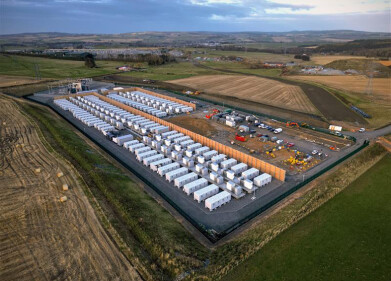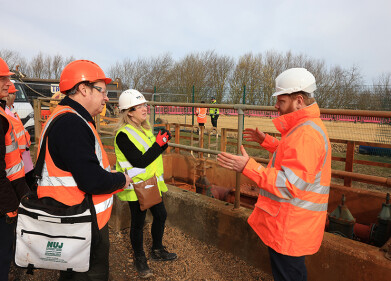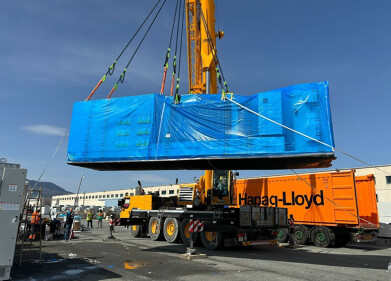Green energy
£20 billion plan to make the UK a global market for carbon capture, usage and storage
Jan 09 2024
The recently unveiled CCUS Vision signals a transformative shift for the UK, propelling it from government-supported initial projects to a competitive market in Carbon Capture, Usage, and Storage (CCUS) by 2035. This strategic move positions UK companies to vie for the construction of carbon capture facilities, ultimately selling their services globally. This trajectory is forecasted to inject an additional £5 billion into the economy annually by 2050, solidifying the UK's role as a pioneer in CCUS technology while maintaining fiscal responsibility.
At the heart of this vision is the process of carbon capture, an ingenious technique involving the interception of carbon dioxide (CO2) before it reaches the atmosphere and its secure underground storage. Leveraging its unique geology, skills, and island infrastructure, the UK holds a significant advantage over other nations. The expanses under the North Sea alone offer the potential to store up to 78 billion tonnes of CO2, equivalent to removing 6 million cars from the roads. This endeavour aligns seamlessly with the recently committed £20 billion investment, aimed at developing CCUS technologies that aspire to store 20-30 million tonnes of CO2 annually by 2030, consequently fostering 50,000 jobs by the same year.
Energy Secretary Claire Coutinho highlighted the UK's unparalleled position in leading carbon capture technologies, emphasising the commitment to substantial funding that not only curtails emissions but also stimulates investment and job creation, fortifying the nation's economic growth.
Lord Callanan, the Energy Efficiency and Green Finance Minister, echoed the sentiment, underlining the pragmatic approach to the carbon challenge and the UK's strategic advantage in becoming a global leader in carbon capture and storage technology. The blueprint unveiled today outlines a trajectory towards establishing a world-leading UK carbon capture industry, slated to become a competitive market by the mid-2030s.
Industry leaders, including Ruth Herbert, CEO of the Carbon Capture and Storage Association, and Hedvig Ljungerud, NSTA Director of Strategy, expressed support for the long-term strategy outlined in the CCUS Vision. The plan envisions the UK's CCUS industry storing over 50 million tonnes annually by 2035, contributing significantly to domestic industry decarbonisation and tapping into export opportunities.
To realise these ambitions, the CCUS Vision proposes concrete measures, such as transitioning to a competitive allocation process for carbon capture projects by 2027, enabling non-pipeline CO2 transport by ship, road, and rail from 2025 onwards, and establishing a working group led by industry to identify cost reduction solutions for CO2 capture.
Recent announcements regarding the expansion of carbon capture clusters, including the HyNet Cluster in the North-West and Wales, underscore the government's commitment to further job creation and investment. The agreement with the Northern Endurance Partnership (NEP) and the expedited setup process for the third and fourth CCUS clusters reflect significant strides in the UK's industrial heartlands' decarbonisation journey.
Luciano Vasques, Managing Director of Eni UK, and Chris Daykin, General Manager of NEP, lauded the positive developments, emphasising the pivotal role these initiatives play in reducing CO2 emissions, protecting jobs, and enhancing industrial competitiveness.
In summary, the CCUS Vision charts an ambitious course for the UK, positioning it as a global frontrunner in CCUS technology, fostering economic growth, and meeting net-zero commitments responsibly. The outlined strategies and investments underscore a commitment to sustainable development, job creation, and a resilient economic future for the UK.
Events
Mar 18 2025 Expo Santa Fe, Mexico
Mar 18 2025 Moscow, Russia
Mar 19 2025 Manila, Philippines
Mar 20 2025 Guangzhou, China
Mar 24 2025 National Harbour, MD, USA














